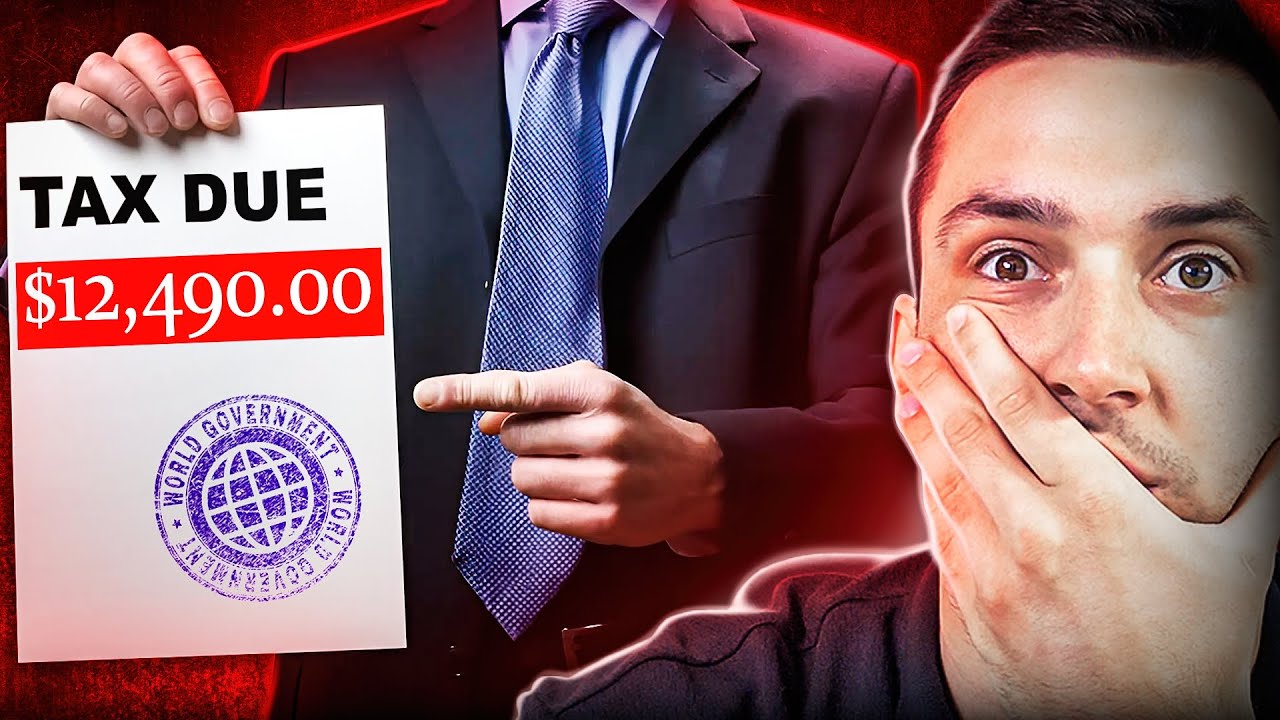How to Avoid Tax Scams
Summary
TLDRThis video script warns of tax scams in the U.S., where scammers impersonate IRS officials to extort money and personal information. It advises taxpayers to be vigilant, as the IRS typically contacts individuals via mail, not phone or email. The script recommends verifying any suspicious calls with the IRS directly and filing taxes early to prevent identity theft. It also cautions against unscrupulous tax preparers and encourages seeking help from the IRS website for any tax-related concerns.
Takeaways
- 🚨 Thousands of U.S. taxpayers fall victim to tax scams each year.
- 🛡 Scammers often impersonate IRS employees to intimidate and steal personal information.
- ✉️ The IRS typically contacts taxpayers via mail, not through email, text, or social media.
- 📞 Be cautious of phone calls claiming to be from the IRS, especially if they demand immediate payment.
- 🔍 If you receive a suspicious call, take down the caller's details and verify with the IRS directly.
- 📈 File your taxes early to reduce the risk of identity theft and fraudulent tax filings.
- 💼 Avoid tax preparers who charge a percentage of your refund or promise an unusually large refund.
- 🔒 Protect your personal and financial information to prevent becoming a victim of tax scams.
- ❌ Be wary of any communication that seems overly urgent or pushy, as it may be a scam.
- 🌐 For any tax-related questions or concerns, visit the official IRS website at www.irs.gov.
Q & A
What is a common tax scam in the U.S.?
-A common tax scam involves scammers impersonating IRS employees who contact taxpayers by phone, email, or text, pressuring them to give money or personal information under the threat of arrest or loss of tax refund.
How can taxpayers identify if an IRS contact is legitimate?
-Taxpayers can identify a legitimate IRS contact by noting that the IRS generally initiates contact through the mail, not through email, text, fax, or social media.
What should you do if you receive a suspicious call claiming to be from the IRS?
-If you receive a suspicious call claiming to be from the IRS, take down the caller's name, badge number, and caller ID information, then contact the IRS directly to verify its legitimacy.
Why is it advised to file taxes as early as possible?
-Filing taxes as early as possible helps prevent identity thieves from filing a return in your name, thus reducing the chance of them claiming your tax refund.
What are some red flags to watch out for when choosing a tax preparer?
-Red flags include preparers who take a percentage of your refund instead of charging a flat fee, and those who promise a larger refund than you deserve, as these promises are likely too good to be true.
How can taxpayers protect themselves from tax scams?
-Taxpayers can protect themselves by being aware of how the IRS contacts people, filing taxes early, and avoiding questionable tax preparers.
What is the primary method the IRS uses to initiate contact with taxpayers?
-The primary method the IRS uses to initiate contact with taxpayers is through the mail.
What should you not expect from the IRS in terms of communication?
-You should not expect the IRS to demand immediate payment over the phone, nor should you expect them to threaten arrest or loss of tax refund as a pressure tactic.
What steps can be taken if you are unsure about the legitimacy of an IRS-related communication?
-If unsure about the legitimacy of an IRS-related communication, contact the IRS directly using official channels to verify.
Where can taxpayers go for help or to report tax scams?
-Taxpayers can visit the IRS website at www.irs.gov for help or to report tax scams.
What is the role of the Goodwill Community Foundation in relation to tax scams?
-The Goodwill Community Foundation is mentioned in the context of creating opportunities for a better life, though its direct role in combating tax scams is not specified in the script.
Outlines

This section is available to paid users only. Please upgrade to access this part.
Upgrade NowMindmap

This section is available to paid users only. Please upgrade to access this part.
Upgrade NowKeywords

This section is available to paid users only. Please upgrade to access this part.
Upgrade NowHighlights

This section is available to paid users only. Please upgrade to access this part.
Upgrade NowTranscripts

This section is available to paid users only. Please upgrade to access this part.
Upgrade NowBrowse More Related Video
5.0 / 5 (0 votes)





